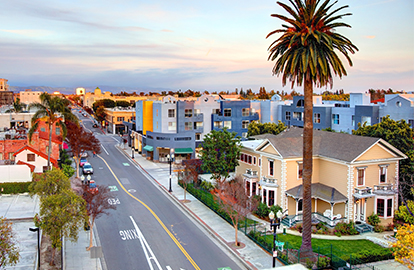
After a car accident, victims often feel overwhelmed and unsure about what steps to take. One common concern is whether a police report is required in order to file an insurance claim or pursue compensation through a personal injury lawsuit. While a police report can be very helpful, it is not always mandatory. Understanding how the process works can give you confidence and clarity about your next steps.
Why Police Reports Matter After a Car Accident
A police report provides an official record of your accident. It typically includes important details such as:
- The date, time, and location of the crash
- The parties involved and their insurance information
- Statements from drivers, passengers, and witnesses
- The responding officer’s observations and conclusions about fault
Insurance companies and courts value these reports because they come from a neutral third party. Having one strengthens your claim and can make it easier to prove what happened.
However, not every accident results in a police report. In minor collisions, drivers sometimes agree not to call the police. In other cases, law enforcement may not respond if no one is injured and property damage appears minimal.
Filing a Claim Without a Police Report
The good news is that you can still file a car accident claim without a police report. Insurance companies primarily care about evidence, and there are many other ways to document what happened.
What matters most is that you can show:
- The accident occurred
- The other driver was at fault (or shared fault)
- You suffered damages such as medical expenses, lost wages, or property damage
Without a police report, you’ll need to rely on alternative forms of evidence.
Evidence That Can Support Your Claim
If a police report isn’t available, gathering strong evidence becomes even more important.
Useful documentation may include:
- Photographs and videos of the accident scene, vehicle damage, and injuries
- Witness statements from passengers, bystanders, or nearby business employees
- Medical records showing treatment for accident-related injuries
- Repair estimates or receipts for vehicle damage
- Your own notes about what happened immediately before, during, and after the crash
This information can help paint a clear picture of how the accident occurred and why you deserve compensation.
Challenges of Filing Without a Police Report
While it is possible to move forward without a police report, doing so may present challenges. Insurance adjusters may question your version of events or argue that the accident did not happen the way you describe. Without an official report, proving fault often becomes more difficult.
This is especially true in situations where liability is disputed. For example, if both drivers claim the other ran a red light, a police officer’s assessment could have provided critical insight. Without it, the insurance company may attempt to deny or reduce your claim.
When a Police Report Is Legally Required
In some states, drivers are legally required to report accidents to the police if the crash involves:
- Injuries or fatalities
- Significant property damage
- A hit-and-run incident
Failing to report in these situations could lead to fines or other penalties. Even if the law does not require a report, calling the police after an accident is usually in your best interest.
Steps to Take If You Don’t Have a Police Report
If you find yourself in the position of filing a claim without a police report, here are a few steps you should take:
- Notify your insurance company promptly – Waiting too long may give them a reason to deny coverage.
- Gather as much evidence as possible – The more documentation you provide, the stronger your claim will be.
- Request traffic camera or surveillance footage – In urban areas, nearby cameras may have captured the crash.
- Consult with a car accident attorney – A lawyer can help you collect evidence, communicate with insurers, and build a compelling case.
Following these steps can help strengthen your case and improve your chances of recovering fair compensation, even without the benefit of a police report.
How a Car Accident Attorney Can Help
An experienced car accident lawyer can make a big difference in cases without a police report. Attorneys know how to investigate crashes, track down witnesses, and obtain additional records that support your claim. They can also push back against insurance company tactics designed to minimize payouts.
In many cases, attorneys are able to negotiate favorable settlements even when police reports are unavailable. And if the case goes to court, your lawyer can present a clear and persuasive argument on your behalf.
Contact Robles Babaee Personal Injury Lawyers for a Free Consultation
After a serious accident, you should not have to navigate the legal system or battle insurance companies on your own. The experienced team at Robles Babaee Personal Injury Lawyers is dedicated to protecting your rights, pursuing the compensation you deserve, and guiding you through every step of the recovery process.
Contact us today for a free, no-obligation consultation and let us fight for the justice and financial security you and your family need.
Robles Babaee, Personal Injury Lawyers
1851 E 1st St Suite 810, Santa Ana, CA 92705
(714) 263-3700
